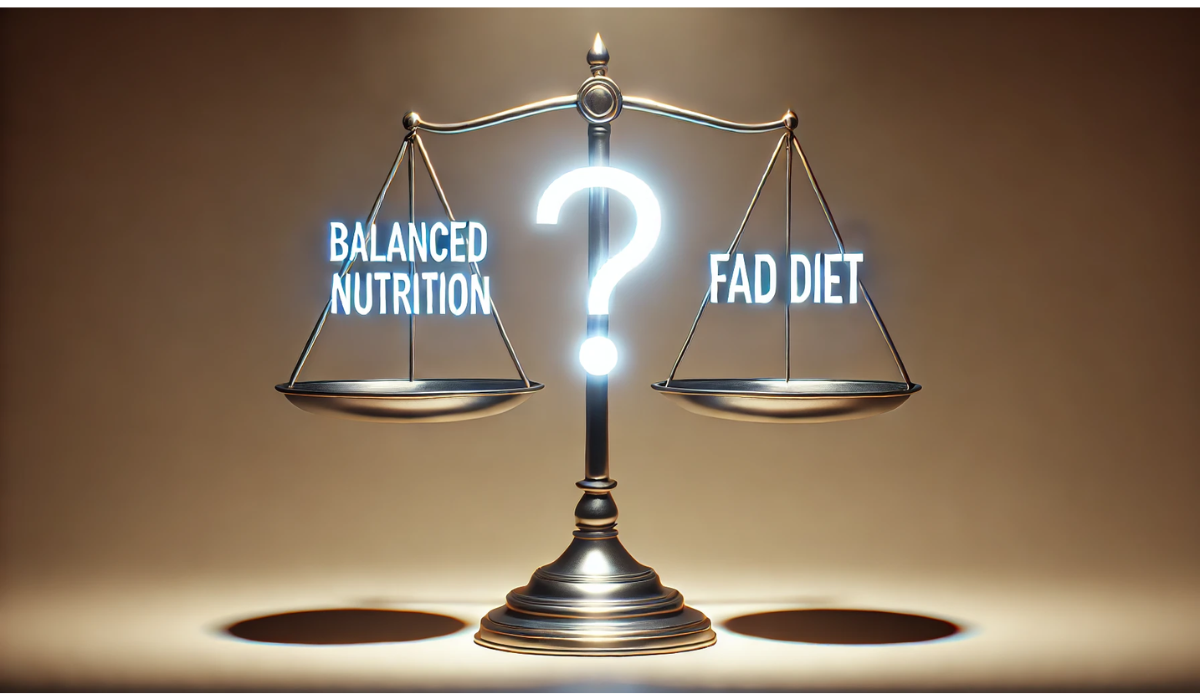The global obesity crisis is no longer just a concern—it is an epidemic. While countless people turn to fad diets promising quick weight loss, the reality is that these extreme approaches are only exacerbating the problem. The rise in obesity is not just about excessive calorie intake; it is a direct consequence of misguided dietary trends, metabolic dysfunction, and the abandonment of balanced nutrition.
The Rise and Fall of Fad Diets
Fad diets have taken the health and wellness industry by storm, often marketed as the ultimate solution to weight loss. However, they fail to address the underlying causes of obesity and, in many cases, make it worse.
- Extreme Caloric Restriction and Metabolic Slowdown
- Rapid weight loss from severe calorie deficits leads to muscle loss and a slower metabolism.
- The body adapts to starvation mode, storing more fat once normal eating resumes.
- Macronutrient Elimination Diets
- Low-carb and zero-fat diets deprive the body of essential nutrients required for energy production and hormone regulation.
- Carbohydrates are necessary for brain function, and healthy fats support cellular health and metabolism.
- Overemphasis on Short-Term Gains
- Fad diets are designed for temporary results, leading to the cycle of weight loss and regain, also known as yo-yo dieting.
- The loss of muscle mass further deteriorates metabolic efficiency, making future weight loss harder.
- Misinformation and Marketing Gimmicks
- Diet culture promotes misleading claims, such as detoxes and fat-burning supplements, which have little scientific backing.
- The obsession with weight loss over overall health fosters unhealthy eating patterns and psychological distress.
The Role of Nutrient Deficiencies in Obesity
Ironically, while obesity is linked to excessive calorie consumption, it is also associated with malnutrition. Deficiencies in key nutrients impair metabolism and contribute to fat accumulation.
- Protein Deficiency
- Lack of adequate protein reduces muscle mass and increases fat storage.
- Protein is essential for satiety, and its absence leads to overeating and cravings.
- Magnesium and B-Vitamins
- These nutrients are crucial for energy production and metabolic efficiency.
- Deficiencies can lead to fatigue, sluggish metabolism, and increased fat storage.
- Fiber Deficiency
- Low-fiber diets slow digestion and impair gut health, leading to insulin resistance and weight gain.
- Whole grains, fruits, and vegetables should be prioritized over refined carbs.
- Omega-3 Fatty Acids
- Found in nuts, seeds, and certain plant-based oils, omega-3s regulate inflammation and insulin sensitivity.
- Deficiency contributes to metabolic syndrome and increased belly fat.
The Link Between Processed Foods and Obesity
The modern diet has shifted drastically from whole, home-cooked meals to ultra-processed, calorie-dense, nutrient-poor foods. This shift has had a profound impact on obesity rates.
- High Sugar and Artificial Additives
- Excessive sugar consumption leads to insulin resistance and increased fat accumulation.
- Artificial sweeteners and additives disrupt gut microbiota, worsening metabolic health.
- Highly Palatable, Low-Nutrient Foods
- Processed foods are designed to be addictive, overriding the body’s natural satiety signals.
- The combination of high salt, fat, and refined carbs triggers binge eating behaviors.
- Disrupted Hunger Hormones
- Leptin and ghrelin, the hormones responsible for hunger and satiety, are severely affected by processed foods.
- This leads to constant cravings and an inability to recognize fullness, driving excessive calorie consumption.
Why Balanced Nutrition is the Solution
Instead of chasing quick fixes, a science-backed, balanced approach is the key to reversing the obesity crisis. Sustainable nutrition focuses on long-term health rather than rapid weight loss.
- Prioritizing Whole, Unprocessed Foods
- Incorporating a variety of fresh vegetables, whole grains, legumes, and healthy fats provides sustained energy and metabolic support.
- Macronutrient Balance
- Every meal should include a balance of complex carbohydrates, healthy fats, and quality protein to prevent blood sugar spikes and metabolic dysfunction.
- Meal Timing and Portion Control
- Eating in alignment with the body’s natural circadian rhythms improves digestion and metabolism.
- Smaller, frequent meals prevent energy crashes and reduce overeating tendencies.
- Mindful Eating and Gut Health
- The gut microbiome plays a crucial role in metabolism and weight regulation.
- Consuming probiotic-rich foods like fermented vegetables and curd enhances digestion and nutrient absorption.
Breaking the Cycle of Fad Dieting and Obesity
To combat obesity, the focus must shift from weight loss obsession to metabolic health and sustainable nutrition.
- Education Over Diet Culture
- Understanding the body’s nutritional needs empowers individuals to make informed food choices.
- Public awareness campaigns should highlight the dangers of fad diets and the benefits of balanced nutrition.
- Long-Term Lifestyle Changes Over Quick Fixes
- Consistency in healthy habits leads to permanent metabolic improvements.
- Physical activity, hydration, and stress management are just as crucial as dietary choices.
Conclusion
The obesity crisis is fueled by misinformation, unhealthy dietary patterns, and extreme diet culture. While fad diets may offer temporary results, they do more harm than good in the long run. The real solution lies in sustainable, balanced nutrition that supports metabolism, nourishes the body, and fosters long-term health.
Rather than looking for shortcuts, adopting science-backed dietary habits will pave the way for a healthier future.


